Are you feeling overwhelmed by the financial realities of pursuing your education? If so, you're not aloneâmany students face unexpected challenges that can threaten their academic goals. Writing a financial aid appeal can seem daunting, but it's a crucial step to securing the support you need to continue your studies. Stick with us as we guide you through a simple letter template that can help you effectively advocate for your financial aid request.

Personalized Salutation
Financial aid appeals often arise from unexpected financial hardships or changes in family circumstances. These appeals typically require clear communication of specific issues, such as job loss, medical emergencies, or significant changes in family income. The appeal process commonly involves submitting supporting documentation, such as tax returns and letters from employers or healthcare providers, to demonstrate the legitimacy of the financial need. Institutions often have specific guidelines and deadlines for appeals, making it essential for applicants to adhere to these timelines while clearly articulating their situation and requesting reconsideration of their financial aid status.
Clear Explanation of Financial Situation
Facing unexpected financial difficulties can significantly impact one's ability to afford higher education. A family's income, for instance, may have decreased due to job loss or medical expenses, leading to a reduced capacity to pay tuition fees. The average cost of college tuition in the United States reaches approximately $35,000 annually, not including additional expenses like textbooks and housing, which can further strain limited resources. Students may experience circumstances such as a parent's separation or increased caregiving responsibilities, jeopardizing their financial stability. The reliance on financial aid, which averages around $15,000 per year for undergraduate students, becomes crucial for managing these challenges and continuing academic pursuits. Submitting a well-documented appeal, highlighting specific changes in income or expenses, can significantly influence the reassessment of financial aid eligibility, ensuring access to educational opportunities despite financial setbacks.
Detailed Budget Breakdown
A comprehensive budget breakdown is essential for understanding financial needs and securing financial aid. Tuition costs at prominent universities, such as Harvard University (approximately $54,000 per academic year for undergraduate students), are significant. Additional expenses include textbooks, averaging $1,200 annually, and housing costs, which can range from $8,000 to $14,000 depending on whether students opt for on-campus or off-campus accommodations. Daily living expenses like groceries and utilities often accumulate to around $3,000 per year. Moreover, transportation fees, which may include public transit passes or car-related costs, need assessment, averaging $600 annually. Miscellaneous expenses for personal supplies and extracurricular activities can further add to the estimated total budget, sometimes exceeding $2,000 each year. This detailed analysis not only highlights the necessity of financial aid but also provides a transparent view of overall educational costs, ensuring informed decision-making for students and financial aid officers alike.
Supporting Documentation
Supporting documentation plays a crucial role in the financial aid appeal process for students seeking assistance in covering educational costs at accredited institutions, such as universities and colleges. This documentation often includes tax returns, W-2 forms, and proof of income, which provide a snapshot of the family's financial situation, clarifying any changes that occurred since the original application. Additionally, letters from employers, medical bills, or unexpected expenses can help illustrate circumstances that may not be fully captured in standardized forms. Including personal statements detailing specific hardships or updates about the student's academic performance can strengthen the appeal, showcasing the genuine need for increased financial support to ensure uninterrupted access to education.
Specific Request and Gratitude
A financial aid appeal must articulate the specific circumstances necessitating additional support, often revolving around unexpected life events like job loss, medical expenses, or family emergencies. Students should express gratitude towards the financial aid office and articulate how continued support will significantly impact their education, referencing essential aspects of their academic journey, such as their major, university, and the anticipated graduation date. Including specific figures relating to tuition costs and any changes in financial status compared to previous years provides a clear picture of the situation. Additionally, mentioning participation in community service or extracurricular activities can demonstrate a commitment to personal and educational growth, reinforcing the genuine need for assistance.
Letter Template For Financial Aid Appeal Samples
Letter template of financial aid appeal for unexpected medical expenses.
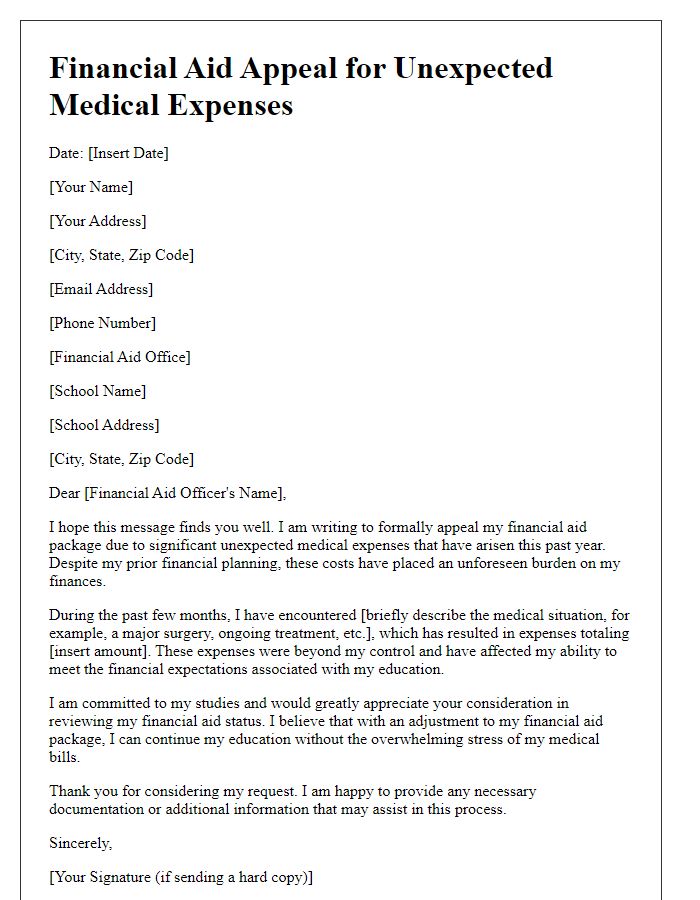
Letter template of financial aid appeal for significant change in family income.
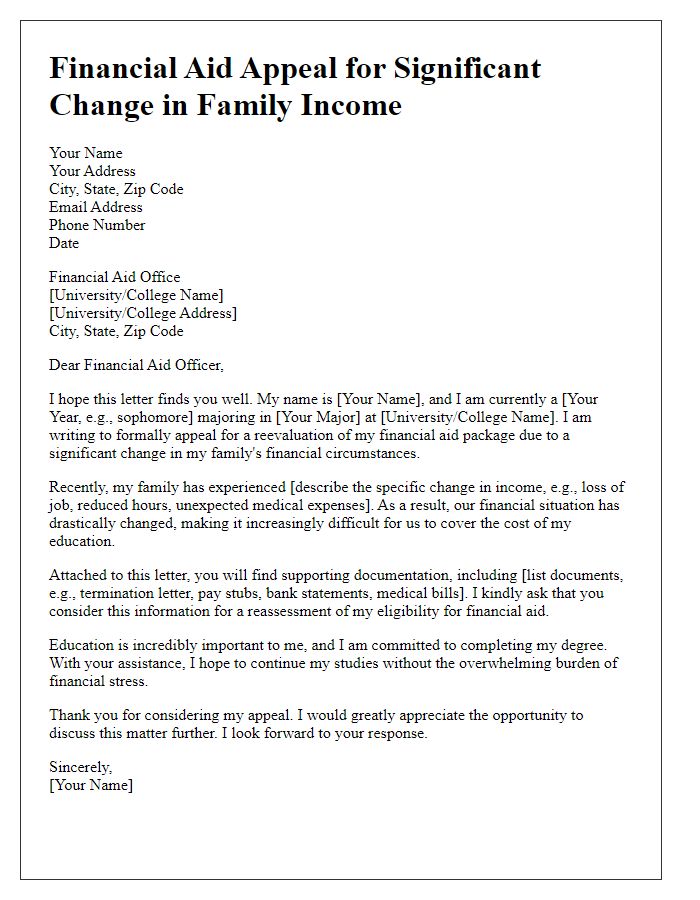
Letter template of financial aid appeal for additional educational costs.
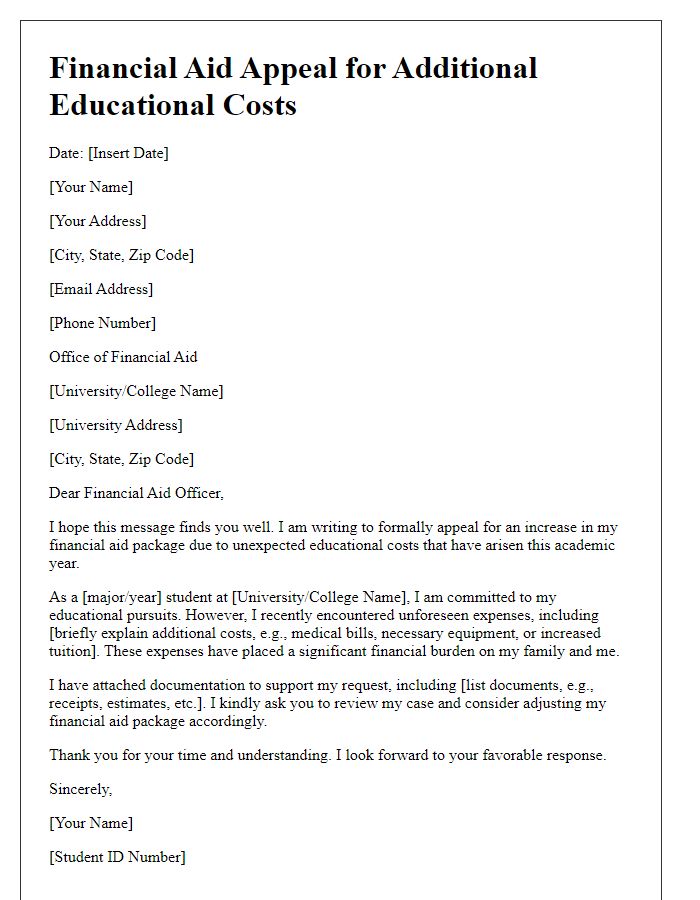
Letter template of financial aid appeal for family emergency situations.
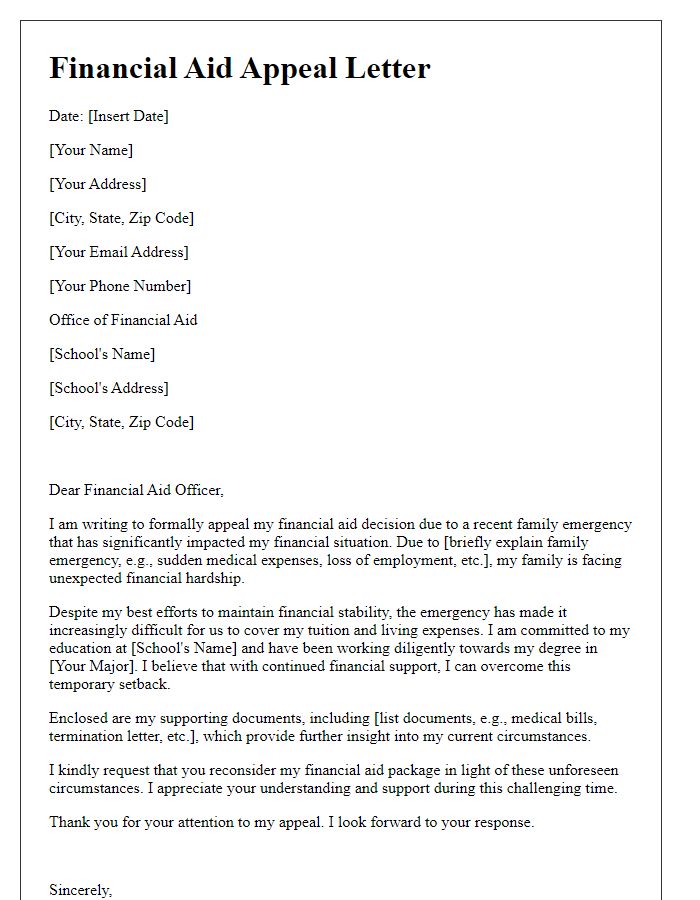
Letter template of financial aid appeal for changes in enrollment status.
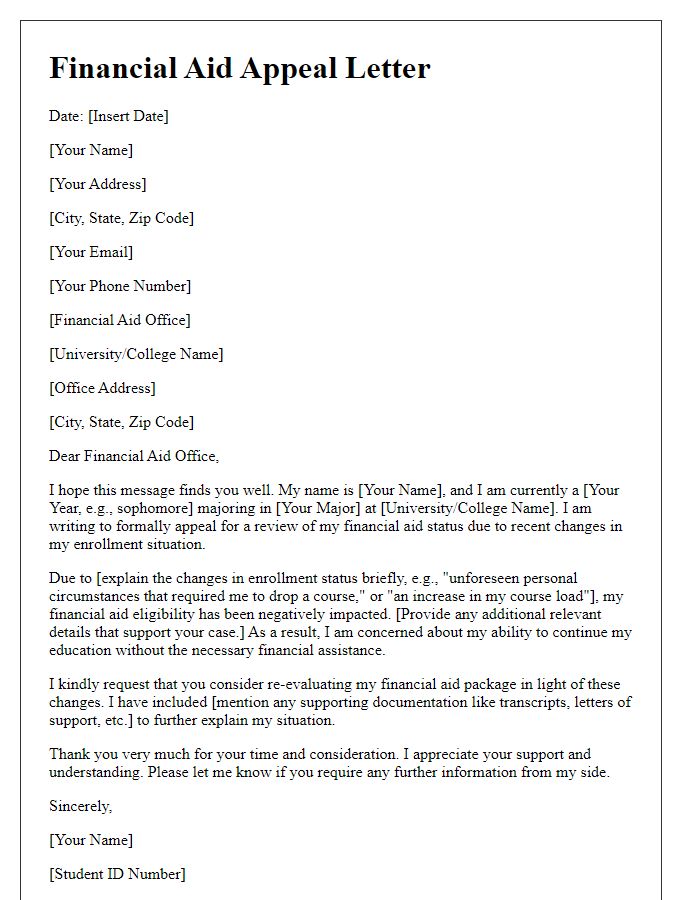

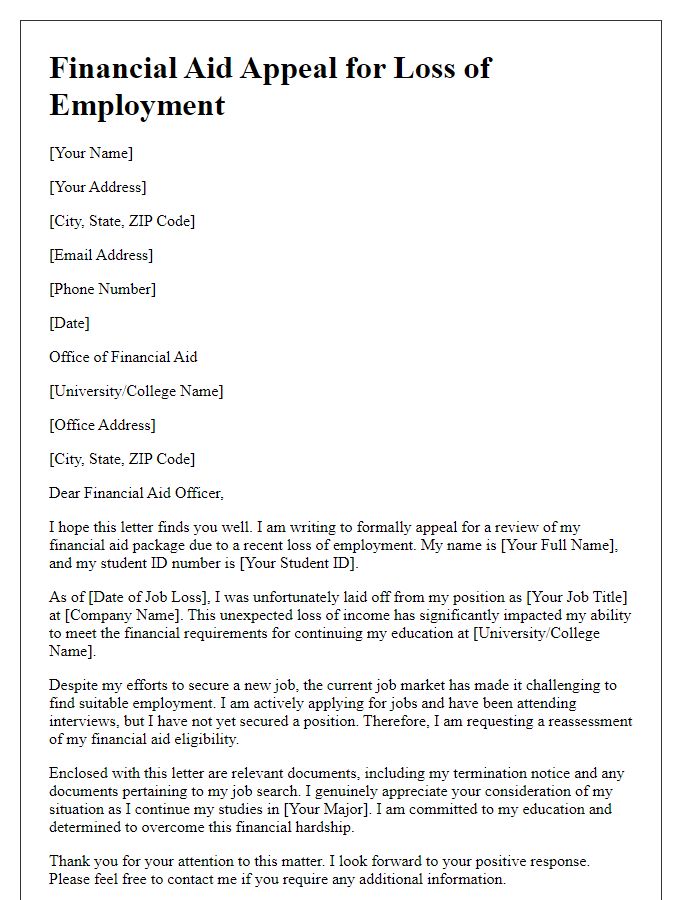
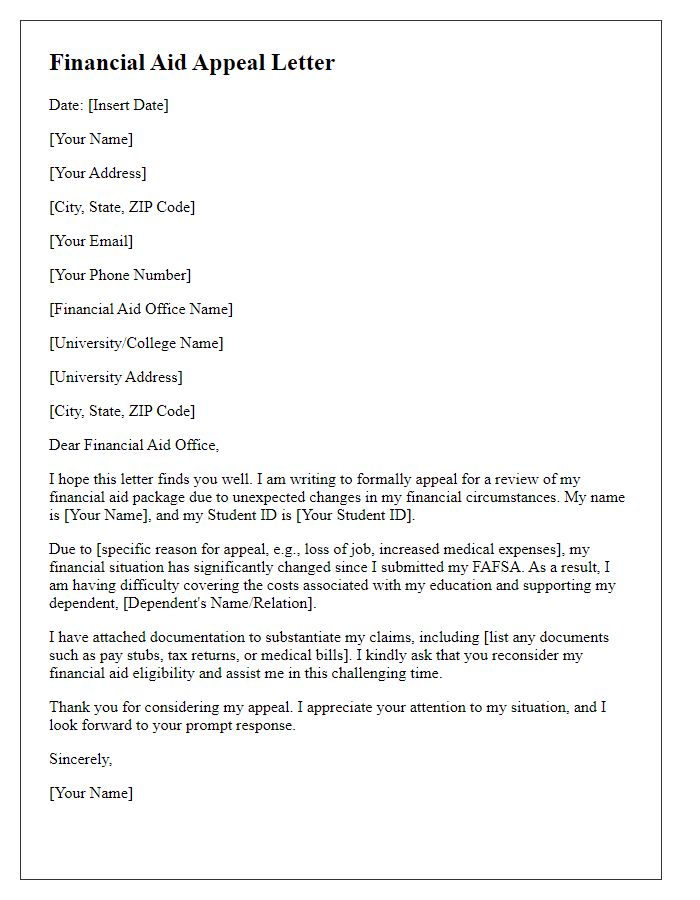
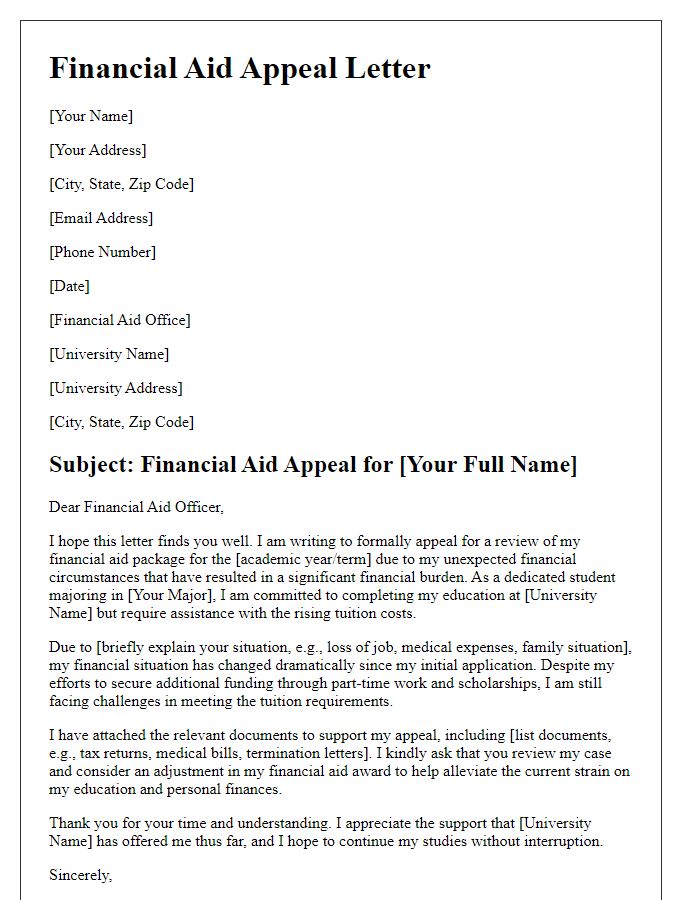
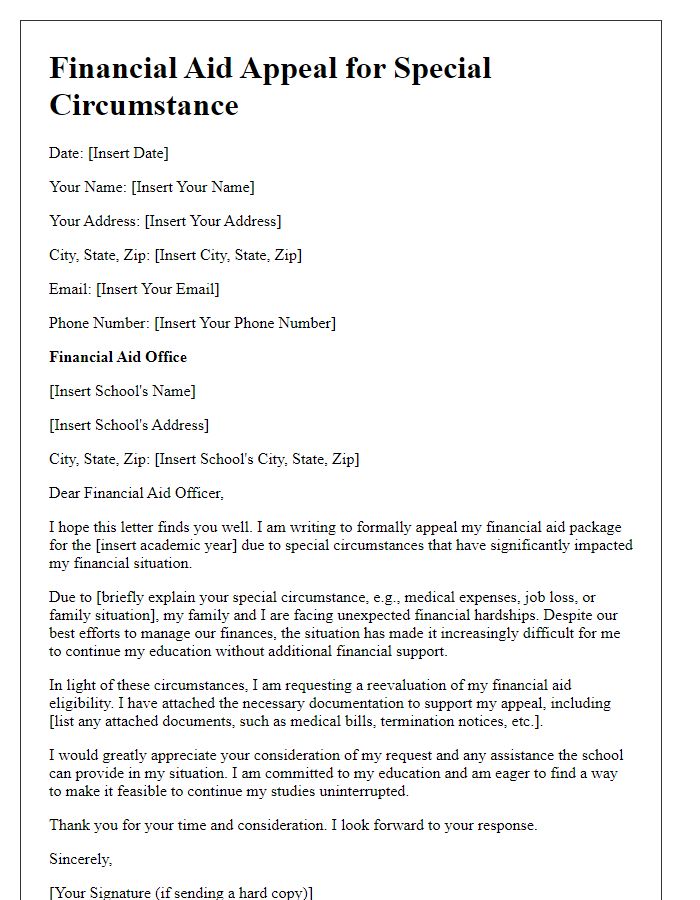
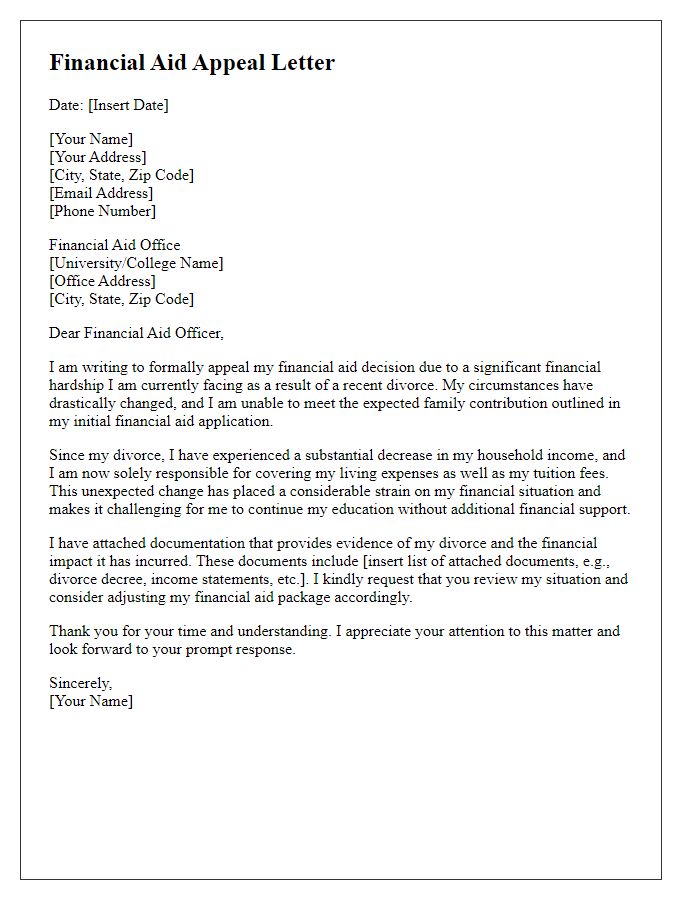


Comments